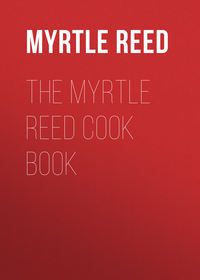 полная версия
полная версияThe Master's Violin
“Aunt Peace,” asked Margaret, after an understanding silence, “why did you never marry?”
Miss Field leaned forward and methodically stirred the fire. “I may be wrong,” she said, “but I have always felt that it was indelicate to allow one’s self to care for a gentleman.”
IV
Social Position
On Wednesday, the dullest person might have felt that there was something in the air. The old house, already exquisitely clean, received further polishing without protest. Savoury odours came from the kitchen, and Iris rubbed the tall silver candlesticks until they shone like new.
“What is it?” asked Lynn. “Are we going to have a party and am I invited?”
“It is Wednesday,” explained Iris.
“Well, what of it?”
“Doctor Brinkerhoff comes to see Aunt Peace every Wednesday evening.”
“Who is Doctor Brinkerhoff?”
“The family physician of East Lancaster.”
“He wasn’t here last Wednesday.”
“That was because you and your mother had just come. Aunt Peace sent him a note, saying that her attention was for the moment occupied by other guests from out of town. It was the first Wednesday evening he has missed for more than ten years.”
“Oh,” said Lynn. “Are they going to be married?”
“Aunt Peace wouldn’t marry anybody. She receives Doctor Brinkerhoff because she is sorry for him.
“He has no social position,” Iris continued, feeling the unspoken question. “He is not of our class and he used to live in West Lancaster, but Aunt Peace says that any gentleman who is received by a lady in her bedroom may also be received in her parlour. Another lady, who thinks as Aunt Peace does, entertains him on Saturday evenings.”
Iris sat there demurely, her rosy lips primly pursed, and vigorously rubbed the tall candlestick. Lynn fairly choked with laughter. “Oh,” he cried, “you funny little thing!”
“I am not a little thing and I am not funny. I consider you very impertinent.”
“What is ‘social position’?” asked Irving, instantly sobering. “How do we get it?”
“It is born with us,” answered Iris, dipping her flannel cloth in ammonia, “and we have to live up to it. If we have low tastes, we lose it, and it never comes back.”
“Wonder if I have it,” mused Lynn.
“Of course,” Iris assured him. “You are a grand-nephew of Aunt Peace, but not so nearly related as I, because I am her legal daughter. I was born of poor but honest parents,” she went on, having evidently absorbed the phrase from her school Reader, “so I was respectable, even at the beginning. When Aunt Peace took me, I got social position, and if I am always a lady, I will keep it. Otherwise not.”
The girl was very lovely as she leaned back in the quaint old chair to rest for a moment. She was still regarding the candlestick attentively and did not look at Lynn. “It is strange to me,” she said, “that coming from the city, as you do, you should not know about such things.” Here she sent him the quickest possible glance from a pair of inscrutable eyes, and he began to wonder if she were not merely amusing herself. He was tempted to kiss her, but wisely refrained.
“Iris,” called Aunt Peace, from the doorway, “will you wash the Royal Worcester plate? And Lynn, it is time you were practising.”
Lynn worked hard until the bell rang for luncheon. When he went down, he found the others already at the table. “We did not wait for you,” Aunt Peace explained, “because we were in a hurry. Immediately after luncheon, on Wednesdays, I take my nap. I sleep from two to three. Will you please see that the house is quiet?”
She spoke to Margaret, but she looked at Lynn. “Which means,” said he, “that those who are studying the violin will kindly not practise until after three o’clock, and that it would be considered a kindness if they would not walk much in the house, their feet being heavy.”
“Lynn,” said the old lady, irrelevantly, “you are extremely intelligent. I expect great things of you.”
That weekly hour of luxury was the only relaxation in Miss Field’s busy, happy life. Breakfast at seven and bed at ten – this was the ironclad rule of the house. Ever since she came to East Lancaster, Iris had kept solemn guard over the front door on Wednesdays, from two to three. Rash visitors never reached the bell, but were met, on the doorstep, by a little maid whose tiny finger rested upon her lip. “Hush,” she would say, “Aunt Peace is asleep!” Interruptions were infrequent, however, for East Lancaster knew Miss Field’s habits – and respected them.
“Good-bye, my dears,” she said, as she paused at the foot of the winding stairs, “I leave you for a far country, where, perhaps, I shall meet some of my old friends. I shall visit strange lands and have many new experiences, some of which will doubtless be impossible and grotesque. I shall be gone but one short hour, and when I return I shall have much to tell you.”
“She dreams,” explained Iris, in a low voice, as the mistress of the mansion smiled back at them over the railing, “and when she wakes she always tells me.”
Lynn went out for a long tramp, after vainly endeavouring to persuade his mother or Iris to accompany him. “I’m walked enough at night as it is,” said Mrs. Irving, and the girl excused herself on account of her household duties.
He clattered down the steps, banged the gate, and went whistling down the elm-bordered path. The mother listened, fondly, till the cheery notes died away in the distance. “Bless his heart,” she said to herself, “how fine and strong he is and how much I love him!”
The house seemed to wait while its guardian spirit slept. Left to herself, Margaret paced to and fro; down the long hall, then back, through the parlour and library, and so on, restlessly, until she reflected that she might possibly disturb Aunt Peace.
A love-lorn robin, in the overhanging boughs of the maple at the gate, was unsuccessfully courting a disdainful lady who sat on the topmost twig and paid no attention to him. From the distant orchard came the breath of apple blooms, and a single bluebird winged his solitary way across the fields, his colour gleaming brightly for an instant against the silvery clouds. Beautiful as it was, Margaret sighed, and her face lost its serenity.
A bit of verse sang itself through her memory again and again.
“Who wins his love shall lose her,
Who loses her shall gain,For still the spirit wooes her,A soul without a stain,And memory still pursues herWith longings not in vain.“In dreams she grows not olderThe lands of Dream among;Though all the world wax colder,Though all the songs be sung,In dreams doth he behold her —Still fair and kind and young.”“Dreams,” she murmured, “empty dreams, while your soul starves.”
Iris tiptoed in with her sewing and sat down. Margaret felt her presence in the room, but did not turn away from the window. Iris was one of those rare people with whom one could be silent and not feel that the proprieties had been injured.
Deep down in her heart, Margaret had stored away all the bitterness of her life – that single drop which is well enough when left by itself, because it is of a different specific gravity. When the cup is stirred, the lees taint the whole, and it takes time for the readjustment. Were it not for the merciful readjustment, this grey old world of ours would be too dark to live in.
At length she turned and looked at the little seamstress, who sat bolt upright, as she had been taught, in the carved mahogany chair. She noted the long lashes that swept the tinted cheek, the masses of blue-black hair over the low, white brow, the tender wistfulness in the lines of the mouth, the dimpled hands, and the rounded arm – so evidently made for all the sweet uses of love that Margaret’s heart contracted in sudden pain.
“Iris,” she said, in a tone that startled the girl, “when the right man comes, and you know absolutely in your own heart that he is the right man, go with him, whether he be prince or beggar. If unhappiness comes to you, take it bravely, as a gentlewoman should, but never, for your own sake, allow yourself to regret your faith in him. If you love him and he loves you, there are no barriers between you – they are nothing but cobwebs. Sweep them aside with a single stroke of magnificent daring, and go. Social position counts for nothing, other people’s opinions count for nothing; it is between your heart and his, and in that sanctuary no one else has a right to intrude. If he has only a crust to give you, share it with him, but do not let anyone persuade you into a lifetime of heart-hunger – it is too hard to bear!”
The girl’s deep eyes were fixed upon her, childish, appealing, and yet with evident understanding. Margaret’s face was full of tender pity – was this butterfly, too, destined to be broken on the wheel?
Iris felt the sudden passion of the other, saw traces of suffering in the dark eyes, the set lips, and even in the slender hands that hovered whitely over the black gown. “Thank you, Mrs. Irving,” she said, quietly, “I understand.”
The minutes ticked by, and no other word was spoken. At half-past three, precisely, Aunt Peace came back. She had on her best gown – a soft, heavy black silk, simply made. At the neck and wrists were bits of rare old lace, and her one jewel, an emerald of great beauty and value, gleamed at her throat. She wore no rings except the worn band of gold that had been her mother’s wedding ring.
“What did you dream?” asked Iris.
“Nothing, dearie,” she laughed. “I have never slept so soundly before. Our guests have put a charm upon the house.”
From the embroidered work-bag that dangled at her side, she took out the thread lace she was making, and began to count her stitches.
“I think I’ll get my sewing, too,” said Margaret. “I feel like a drone in this hive of industry.”
“One, two, three, chain,” said Aunt Peace. “Iris, do you think the cakes are as good as they were last time?”
“I think they’re even better.”
“Did you take out the oldest port?”
“Yes, the very oldest.”
“I trust he was not hurt,” Aunt Peace went on, “because last week I asked him not to come. The common people sometimes feel those things more keenly than aristocrats, who are accustomed to the disturbance of guests.”
“Of course, he would be disappointed,” said Iris, with a little smile, “but he would understand – I’m sure he would.”
When Margaret came back she had a white, fluffy garment over her arm. “Who would have thought,” she cried, gaily, “that I should ever have the time to make myself a petticoat by hand! The atmosphere of East Lancaster has wrought a wondrous change in me.”
“Iris,” said Miss Field, “let me see your stitches.”
The girl held up her petticoat – a dainty garment of finest cambric, lace-trimmed and exquisitely made, and the old lady examined it critically. “It is not what I could do at your age,” she continued, “but it will answer very well.”
Lynn came in noisily, remembering only at the threshold that one did not whistle in East Lancaster houses. “I had a fine tramp,” he said, “all over West Lancaster and through the woods on both sides of it. I had some flowers for all of you, but I laid them down on a stone and forgot to go back after them. Aunt Peace, you’re looking fine since you had your nap. Still working at that petticoat, mother?”
“We’re all making petticoats,” answered Margaret. “Even Aunt Peace is knitting lace for one and Iris has hers almost done.”
“Let me see it,” said Lynn. He reached over and took it out of the girl’s lap while she was threading her needle. Much to his surprise, it was immediately snatched away from him. Iris paused only long enough to administer a sounding box to the offender’s ear, then marched out of the room with her head high and her work under her arm.
“Well, of all things,” said Lynn, ruefully. “Why wouldn’t she let me look at her petticoat?”
“Because,” answered Aunt Peace, severely, “Iris has been brought up like a lady! Gentlemen did not expect to see ladies’ petticoats when I was young!”
“Oh,” said Lynn, “I see.” His mouth twitched and he glanced sideways at his mother. She was bending over her work, and her lips did not move, but he could see that her eyes smiled.
At exactly half-past seven, the expected guest was ushered into the parlour. “Good evening, Doctor,” said Miss Field, in her stately way; “I assure you this is quite a pleasure.” She presented him to Mrs. Irving and Lynn, and motioned him to an easy-chair.
He was tall, straight, and seventy; almost painfully neat, and evidently a gentleman of the old school.
“I trust you are well, madam?”
“I am always well,” returned Aunt Peace. “If all the other old ladies in East Lancaster were as well as I, you would soon be obliged to take down your sign and seek another location.”
The others took but small part in the conversation, which was never lively, and which, indeed, might have been stilted by the presence of strangers. It was the commonplace talk of little things, which distinguishes the country town, and it lasted for half an hour. As the clock chimed eight, Miss Field smiled at him significantly.
“Shall we play chess?” she asked.
“If the others will excuse us, I shall be charmed,” he responded.
Soon they were deep in their game. Margaret went after a book she had been reading, and the young people went to the library, where they could talk undisturbed.
They played three games. Miss Field won the first and third, her antagonist contenting himself with the second. It had always been so, and for ten years she had taken a childish delight in her skill. “My dear Doctor,” she often said, “it takes a woman of brains to play chess.”
“It does, indeed,” he invariably answered, with an air of gallantry. Once he had been indiscreet and had won all three games, but that was in the beginning and it had never happened since.
When the clock struck ten, he looked at his heavy, old-fashioned silver watch with apparent surprise. “I had no idea it was so late,” he said. “I must be going!”
“Pray wait a moment, Doctor. Let me offer you some refreshment before you begin that long walk. Iris?”
“Yes, Aunt Peace.” The girl knew very well what was expected of her, and dimples came and went around the corners of her mouth.
“Those little cakes that we had for tea – perhaps there may be one or two left, and is there not a little wine?”
“I’ll see.”
Smiling at the pretty comedy, she went out into the kitchen, where Doctor Brinkerhoff’s favourite cakes, freshly made, had been carefully put away. Only one of them had been touched, and that merely to make sure of the quality.
With the Royal Worcester plate, generously piled with cakes, a tray of glasses, and a decanter of Miss Field’s famous port, she went back into the parlour.
“This is very charming,” said the Doctor. He had made the same speech once a week for ten years. Aunt Peace filled the glasses, and when all had been served, she looked at him with a rare smile upon her beautiful old face.
Then the brim of his glass touched hers with the clear ring of crystal. “To your good health, madam!”
“And to your prosperity,” she returned. The old toast still served.
“And now, my dear Miss Iris,” he said, “may we not hope for a song?”
“Which one?”
“‘Annie Laurie,’ if you please.”
She sang the old ballad with a wealth of feeling in her deep voice, and even Lynn, who was listening critically, was forced to admit that she did it well.
At eleven, the guest went away, his hostess cordially inviting him to come again.
“What a charming man,” said Margaret.
“An old brick,” added Lynn, with more force than elegance.
“Yes,” replied Aunt Peace, concealing a yawn behind her fan, “it is a thousand pities that he has no social position.”
V
The Light of Dreams
“How do you get on with the Master?” asked Iris.
“After a fashion,” answered Irving; “but I do not get on with Fräulein Fredrika at all. She despises me.”
“She does not like many people.”
“So it would seem. I have been unfortunate from the first, though I was careful to admire ‘mine crazy jug.’”
“It is the apple of her eye,” laughed Iris, “it means to her just what his Cremona means to him.”
“It is a wonderful creation, and I told her so, but where in the dickens did she get the idea?”
“Don’t ask me. Did you happen to notice anything else?”
“No – only the violin. Sometimes I take my lesson in the parlour, sometimes in the shop downstairs, or even in Herr Kaufmann’s bedroom, which opens off of it. When I come, he stops whatever he happens to be doing, sits down, and proceeds with my education.”
“On the floor,” said Iris reminiscently, “she has a gold jar which contains cat tails and grasses. It is Herr Kaufmann’s silk hat, which he used to have when he played in the famous orchestra, with the brim cut off and plenty of gold paint put on. The gilded potato-masher, with blue roses on it, which swings from the hanging lamp, was done by your humble servant. She has loved me ever since.”
“Iris!” exclaimed Lynn, reproachfully. “How could you!”
“How could I what?”
“Paint anything so outrageous as that?”
“My dear boy,” said Miss Temple, patronisingly, with her pretty head a little to one side, “you are young in the ways of the world. I was not achieving a work of art; I was merely giving pleasure to the Fräulein. Much trouble would be saved if people who undertake to give pleasure would consult the wishes of the recipient in preference to their own. Tastes differ, as even you may have observed. Personally, I have no use for a gilded potato-masher – I couldn’t even live in the same house with one, – but I was pleasing her, not myself.”
“I wonder what I could do that would please her,” said Lynn, half to himself.
“Make her something out of nothing,” suggested Iris. “She would like that better than anything else. She has a wall basket made of a fish broiler, a chair that was once a barrel, a dresser which has been evolved from a packing box, a sofa that was primarily a cot, and a match box made from a tin cup covered with silk and gilded on the inside, not to mention heaps of other things.”
“Then what is left for me? The desirable things seem to have been used up.”
“Wait,” said Iris, “and I’ll show you.” She ran off gaily, humming a little song under her breath, and came back presently with a clothes-pin, a sheet of orange-coloured tissue paper, an old black ostrich feather, and her paints.
“What in the world – ” began Lynn.
“Don’t be impatient, please. Make the clothes-pin gold, with a black head, and then I’ll show you what to do next.”
“Aren’t you going to help me?”
“Only with my valuable advice – it is your gift, you know.”
Awkwardly, Lynn gilded the clothes-pin and suspended it from the back of a chair to dry. “I hope she’ll like it,” he said. “She pointed to me once and said something in German to her brother. I didn’t understand, but I remembered the words, and when I got home I looked them up in my dictionary. As nearly as I could get it, she had characterised me as ‘a big, lumbering calf.’”
“Discerning woman,” commented Iris. “Now, take this sheet of tissue paper and squeeze it up into a little ball, then straighten it out and do it again. When it’s all soft and crinkly, I’ll tell you what to do next.”
“There,” exclaimed Lynn, finally, “if it’s squeezed up any more it will break.”
“Now paint the head of the clothes-pin and make some straight black lines on the middle of it, cross ways.”
“Will you please tell me what I’m making?”
“Wait and see!”
Obeying instructions, he fastened the paper tightly in the fork of the clothes-pin, and spread it out on either side. The corners were cut and pulled into the semblance of wings, and black circles were painted here and there. Iris herself added the finishing touch – two bits of the ostrich feather glued to the top of the head for antennæ.
“Oh,” cried Lynn, in pleased surprise, “a butterfly!”
“How hideous!” said Margaret, pausing in the doorway. “I trust it’s not meant for me.”
“It’s for the Fräulein,” answered Iris, gathering up her paints and sweeping aside the litter. “Lynn has made it all by himself.”
“I wonder how he stands it,” mused Irving, critically inspecting the butterfly.
“I asked him once,” said Iris, “if he liked all the queer things in his house, and he shrugged his shoulders. ‘What good is mine art to me,’ he asked, ‘if it makes me so I cannot live with mine sister? Fredrika likes the gay colours, such as one sees in the fields, but they hurt mine eyes. Still because the tidies and the crazy jug swear to me, it is no reason for me to hurt mine sister’s feelings. We have a large house. Fredrika has the upstairs and I have the downstairs. When I can no longer stand the bright lights, I can turn mine back and look out of the window, or I can go down in the shop with mine violins. Down there I see no colours and I can put mine feet on all chairs.’”
Lynn laughed, but Margaret, who was listening intently, only smiled sadly.
That afternoon, when the boy went up the hill, with the butterfly dangling from his hand by a string, he was greeted with childish cries of delight on either side. Hoping for equal success at the Master’s, he rang the bell, and the Fräulein came to the door. When she saw who it was, her face instantly became hard and forbidding.
“Mine brudder is not home,” she said, frostily.
“I know,” answered Lynn, with a winning smile, “but I came to see you. See, I made this for you.”
Wonder and delight were in her eyes as she took it from his outstretched hand. “For me?”
“Yes, all for you. I made it.”
“You make this for me by yourself alone?”
“No, Miss Temple helped me.”
“Miss Temple,” repeated the Fräulein, “she is most kind. And you likewise,” she hastened to add. “It will be of a niceness if Miss Temple and you shall come to mine house to tea to-morrow evening.”
“I’ll ask her,” he returned, “and thank you very much.” Thus Lynn made his peace with Fräulein Fredrika.
Laughing like two irresponsible children, they went up the hill together at the appointed time. Lynn’s arms were full of wild crab-apple blooms, which he had taken a long walk to find, and Iris had two little pots of preserves as her contribution to the feast.
Their host and hostess were waiting for them at the door. Fräulein Fredrika was very elegant in her best gown, and her sharp eyes were kind. The Master was clad in rusty black, which bore marks of frequent sponging and occasional pressing. “It is most kind,” he said, bowing gallantly to Iris; “and you, young man, I am glad to see you, as always.”
Iris found a stone jar for the apple blossoms and brought them in. The Master’s fine old face beamed as he drew a long breath of pink and white sweetness. “It is like magic,” he said. “I think inside of every tree there must be some beautiful young lady, such as we read about in the old books – a young lady something like Miss Iris. All Winter, when it is cold, she sleeps in her soft bed, made from the silk lining of the bark. Then one day the sun shines warm and the robin sings to her and wakes her. ‘What,’ says she, ‘is it so soon Spring? I must get to work right away at mine apple blossoms.’
“Then she stoops down for some sand and some dirt. In her hands she moulds it – so – reaching out for some rain to keep it together. Then she says one charm. With a forked stick she packs it into every little place inside that apple tree and sprinkles some more of it over the outside.
“‘Now,’ says she, ‘we must wait, for I have done mine work well. It is for the sun and the wind and the rain to finish.’ So the rain makes all very wet, and the wind blows and the sun shines, and presently the sand and dirt that she has put in is changed to sap that is so glad it runs like one squirrel all over the inside of the tree and tries to sing like one bird.
“‘So,’ says this young lady, ‘it is as I thought.’ Then she says one more charm, and when the sun comes up in the morning, it sees that the branches are all covered with buds and leaves. The young lady and the moon work one little while at it in the evening, and the next morning, there is – this!”
The Master buried his face in the fragrant blooms. “It is a most wonderful sweetness,” he went on. “It is wind and grass and sun, and the souls of all the apple blossoms that are dead.”
“Franz,” called Fräulein Fredrika, “you will bring them out to tea, yes?”







